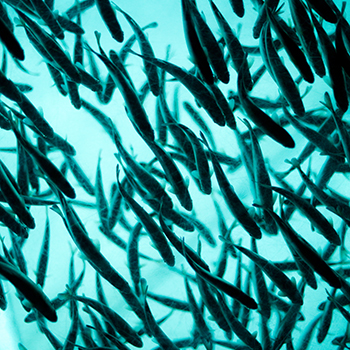 Monitoring fish migration and managing the impact of dams on rivers has been an ongoing challenge to maintain sustainable fish populations. Pacific Northwest National Laboratory (PNNL) in Richland, Washington has developed the ability to record three-dimensional data on fish behavior. They’ve designed an acoustic tag that emits beeps and is tracked by strategically placed receivers along migration pathways. Tracking fish behavior provides critical data that helps biologists make management decisions to optimize dam operations to benefit the fish runs while maintaining power generation.
Monitoring fish migration and managing the impact of dams on rivers has been an ongoing challenge to maintain sustainable fish populations. Pacific Northwest National Laboratory (PNNL) in Richland, Washington has developed the ability to record three-dimensional data on fish behavior. They’ve designed an acoustic tag that emits beeps and is tracked by strategically placed receivers along migration pathways. Tracking fish behavior provides critical data that helps biologists make management decisions to optimize dam operations to benefit the fish runs while maintaining power generation.
These tiny tags can be injected in a few seconds into juvenile fish allowing monitoring of the behavior of salmon and other environmental and economically important fisheries. So then you ask: what happens when the battery dies? The answer: researchers are developing a tag that is powered by the fish’s own movement utilizing a self-charging material. Previous tags required surgical implanting and only lasted for days or months. These tiny tags take only seconds to inject and have the potential to increase the ability of biologists to monitor fisheries for a complete life-cycle. Read more in the Tri-City Herald.
Washington State has 2 top-tier research universities along with many private research organizations and PNNL is one of only 10 scientific national laboratories in the country. 82% of all R&D originates in Washington’s private companies and more than 162 companies can trace their roots to the work done by scientists at PNNL. Cutting edge research by Washington scientists, ranging from artificial intelligence to advanced manufacturing and new materials to life science innovations, is bringing new products and services to the marketplace and improving lives.